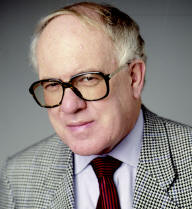The Editor's View Oct 04
Magazine

John Jenkins' monthly column from Writers' Forum magazine
Charity begins with a good
idea as JM Barrie,
Buerk and Geldorf prove
CHARITY in these islands is a multi-billion pound business. Something of the order of £20 billion. And anybody who has satellite or cable television will know that appeals by charity have now gone far beyond the quarter-page advertisements you used to see in the broadsheets.
Heart-rending pictures of victims – usually children or animals – are paraded on screen to persuade you to commit a sum of money each month. Many people wonder just how much of their donation actually ends up benefiting the victims, and how much goes in costs.
Figures produced by charities have to adhere to guidelines laid down by the Charity Commissioners but as in company accounts presentation is everything.
As a body charities are always banging on the door of government for more and this lends an unwelcome political edge to the industry. Some charities have blamed a fall in individual contributions on the fact that people believe that the vast sums generated by the lottery take their place. Possibly.
What is more certain is that much of the use to which lottery funding is put is a bigger turn-off.
When it comes to charity few have matched the idea of the author of Peter Pan, Sir James Barrie.
When asked to join a committee to raise funds for the Great Ormond Street Hospital for Children he declined but then, with typical Scottish financial perception, he generously granted the copyright of his play Peter Pan to the hospital. No middlemen, no cut to professional fundraisers or their ilk, all proceeds direct to the hospital with the minimum of administration.
This has, no doubt, enabled Great Ormond Street to become a byword for excellence in treating severely sick children.
Can I commend the idea to other authors? Rather than set up a fund to provide another prize, perhaps one for a novel written by somebody under the age of 23 and a half in Sheffield on the second Tuesday in May, why not pick a hospice, or something like Great Ormond Street and bequeath worthwhile rights to it? And get one of London’s leading law firms to act without fees to administer it.
Which brings me to Michael Buerk’s autobiography, The Road Taken. Buerk describes in graphic detail how a combination of a reporter’s will and a camera can have a profound effect for good.
He was in Ethiopia 20 years ago reporting on a famine of biblical proportions. Let me quote him direct for I cannot improve on his words.
It is difficult for a decent person to be a journalist in the middle of a disaster . . . . for you are not there to help. Often you hinder. You may try to convince yourself that by bringing this suffering to the attention of a wider world you may eventually play a small part in relieving it but you don’t believe that at the time.
Not when you are aiming a camera into the face of a dying old man or in my case hunting through the legions of the lost looking for pain and grief at its most graphic for your cameraman’s next sequence.
You don’t like what you are doing. You don’t like yourself. And you don’t like the audience of overfed first-world couch potatoes whose taste for sensation you are trying so hard to gratify.
He goes on to describe the horrors of Korem and then the return to the Hilton Hotel in Addis Ababa.
I was grateful for the luxuries – the swimming pool and the gardens – but resented them. I was overwrought and full of disgust.
The Hilton was really a UN hostel, a club for aid industry fat cats. Many probably did good and selfless jobs but the UN agencies had a reputation for high living and low work rate . . . Their much vaunted early warning system was a shambles.
Buerk’s report on the famine echoed round the world. leading to Bob Geldorf’s Band Aid and millions of dollars in donations and support for Ethiopia. It’s given to few reporters to make the impact that Buerk did and given his chance he took it brilliantly.
John Jenkins, Publisher
------------------------------------------------
The book itself, The Road Taken, is published by Hutchinson at £20 and is a superb read and inspiration to any young journalist.
------------------------------------------
Flabbergasted – weight watch
Once again, The Washington Post published its yearly contest in which readers are asked to supply alternative meanings for various words. The winners are:
Coffee– a person who is coughed upon.
Flabbergasted– appalled over how much weight you have gained.
Abdicate– to give up all hope of ever having a flat stomach.
Esplanade– to attempt an explanation while drunk.
Willy-nilly– impotent.
Negligent– describes a condition in which you absentmindedly answer the door in your nightgown.
Lymph– to walk with a lisp.
Gargoyle– an olive-flavoured mouthwash.
Flatulence– the emergency vehicle that picks you up after you are run over by a steamroller
Balderdash– a rapidly receding hairline.
Testicle– a humorous question on an exam.
Frisbeetarianism– the belief that, when you die, your soul goes up on the roof and gets stuck there.
Circumvent– the opening in the front of boxer shorts.
John Jenkins, Publisher, Writers' Forum
Read the article about setting up WritersServices which was originally published in Writers' Forum magazine.
© Writers International Ltd 2004. Reproduced from the December-January edition of Writers' Forum magazine by kind permission of the editor.
